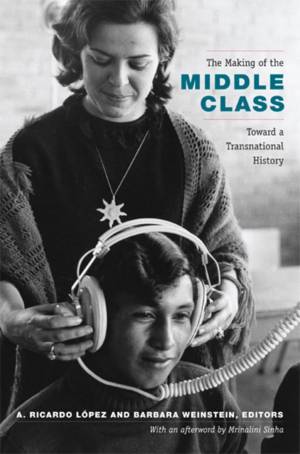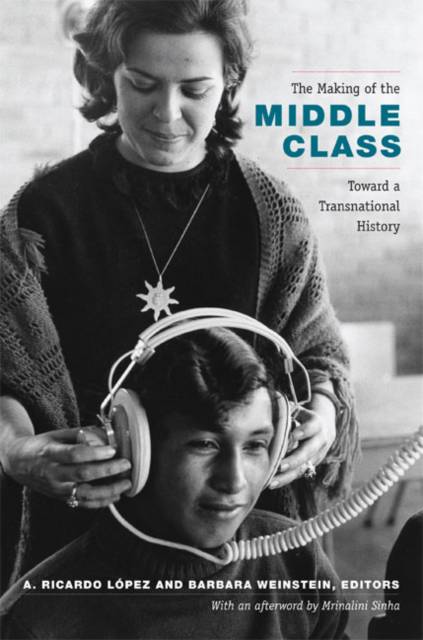
- Afhalen na 1 uur in een winkel met voorraad
- Gratis thuislevering in België vanaf € 30
- Ruim aanbod met 7 miljoen producten
- Afhalen na 1 uur in een winkel met voorraad
- Gratis thuislevering in België vanaf € 30
- Ruim aanbod met 7 miljoen producten
Zoeken
The Making of the Middle Class
Toward a Transnational History
€ 64,45
+ 128 punten
Omschrijving
In this important and timely collection of essays, historians reflect on the middle class: what it is, why its struggles figure so prominently in discussions of the current economic crisis, and how it has shaped, and been shaped by, modernity. The contributors focus on specific middle-class formations around the world-in Africa, Asia, Europe, the Middle East, and the Americas-since the mid-nineteenth century. They scrutinize these formations in relation to the practices of modernity, to professionalization, to revolutionary politics, and to the making of a public sphere. Taken together, their essays demonstrate that the historical formation of the middle class has been constituted transnationally through changing, unequal relationships and shifting racial and gender hierarchies, colonial practices, and religious divisions. That history raises questions about taking the robustness of the middle class as the measure of a society's stability and democratic promise. Those questions are among the many stimulated by The Making of the Middle Class, which invites critical conversation about capitalism, imperialism, postcolonialism, modernity, and our neoliberal present.
Contributors. Susanne Eineigel, Michael A.Ervin, Iñigo García-Bryce, Enrique Garguin, Simon Gunn, Carol E. Harrison, Franca Iacovetta, Sanjay Joshi, Prashant Kidambi, A. Ricardo López, Gisela Mettele, Marina Moskowitz, Robyn Muncy, Brian Owensby, David S. Parker, Mrinalini Sinha, Mary Kay Vaughan, Daniel J. Walkowitz, Keith David Watenpaugh, Barbara Weinstein, Michael O. West
Contributors. Susanne Eineigel, Michael A.Ervin, Iñigo García-Bryce, Enrique Garguin, Simon Gunn, Carol E. Harrison, Franca Iacovetta, Sanjay Joshi, Prashant Kidambi, A. Ricardo López, Gisela Mettele, Marina Moskowitz, Robyn Muncy, Brian Owensby, David S. Parker, Mrinalini Sinha, Mary Kay Vaughan, Daniel J. Walkowitz, Keith David Watenpaugh, Barbara Weinstein, Michael O. West
Specificaties
Betrokkenen
- Uitgeverij:
Inhoud
- Aantal bladzijden:
- 464
- Taal:
- Engels
- Reeks:
Eigenschappen
- Productcode (EAN):
- 9780822351290
- Verschijningsdatum:
- 18/01/2012
- Uitvoering:
- Paperback
- Formaat:
- Trade paperback (VS)
- Afmetingen:
- 152 mm x 231 mm
- Gewicht:
- 635 g

Alleen bij Standaard Boekhandel
+ 128 punten op je klantenkaart van Standaard Boekhandel
Beoordelingen
We publiceren alleen reviews die voldoen aan de voorwaarden voor reviews. Bekijk onze voorwaarden voor reviews.










